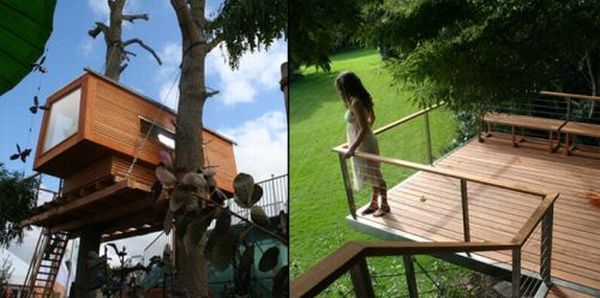|
|
Wooden Architecture
|
Seasoned wood never completely stabilizes, but continues to swell and shrink with seasonal humidity and temperature variations. Any design concept using wood must allow for the particulars of this dimensional variation. Warped wood may be described as bent, twisted, or cupped, or some combination of those modes.
The grain and figure of the wood interact with the shape of the piece to make interesting visual and tactile effects. The surface texture may be manipulated by sanding, scraping, scorching, weathering, or leaving it just as it came from the shaping. Processes such as sanding or rasping have one sort of effect, while cutting (planing, chiseling, gouging, or other carving) leaves the surface with a distinctively clear and fresh appearance, particularly if the tool is well-sharpened. Some finishing processes may leave a corduroy effect, where the lines of harder late wood contrast with the often paler, softer, early wood.
Each tool used to shape wood usually leaves a signature, or distinctive set of marks. For example, it is easy to tell a cut made by a bandsaw from that of a circular saw. If a smooth surface is desired, then planes, scrapers, or sandpaper are useful for "erasing" toolmarks. Sometimes it is more interesting to leave the tool marks showing. Some centuries-old violin scrolls, for instance, still carry the tool marks of the master that made them, working rapidly and efficiently.
|
|









